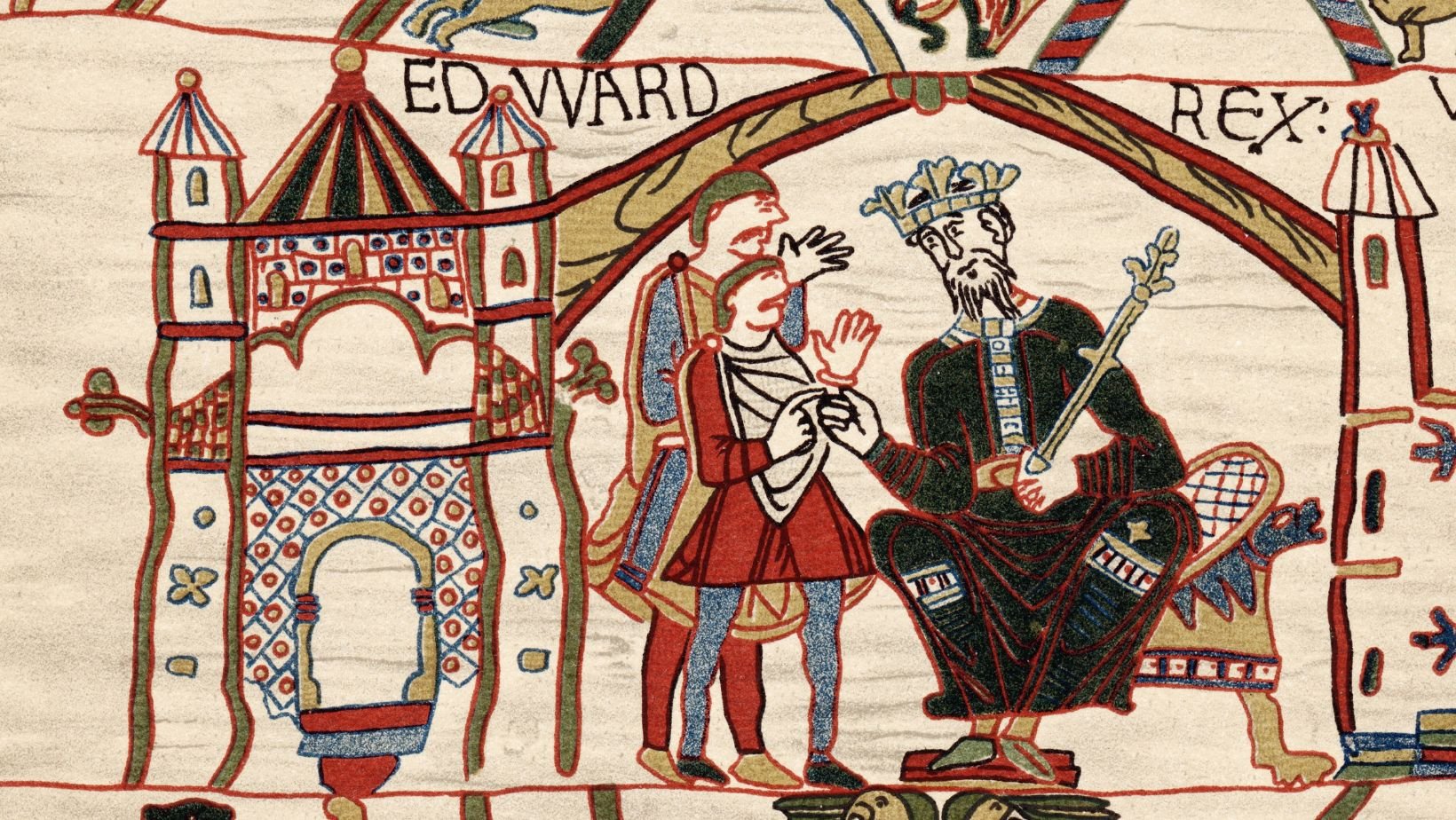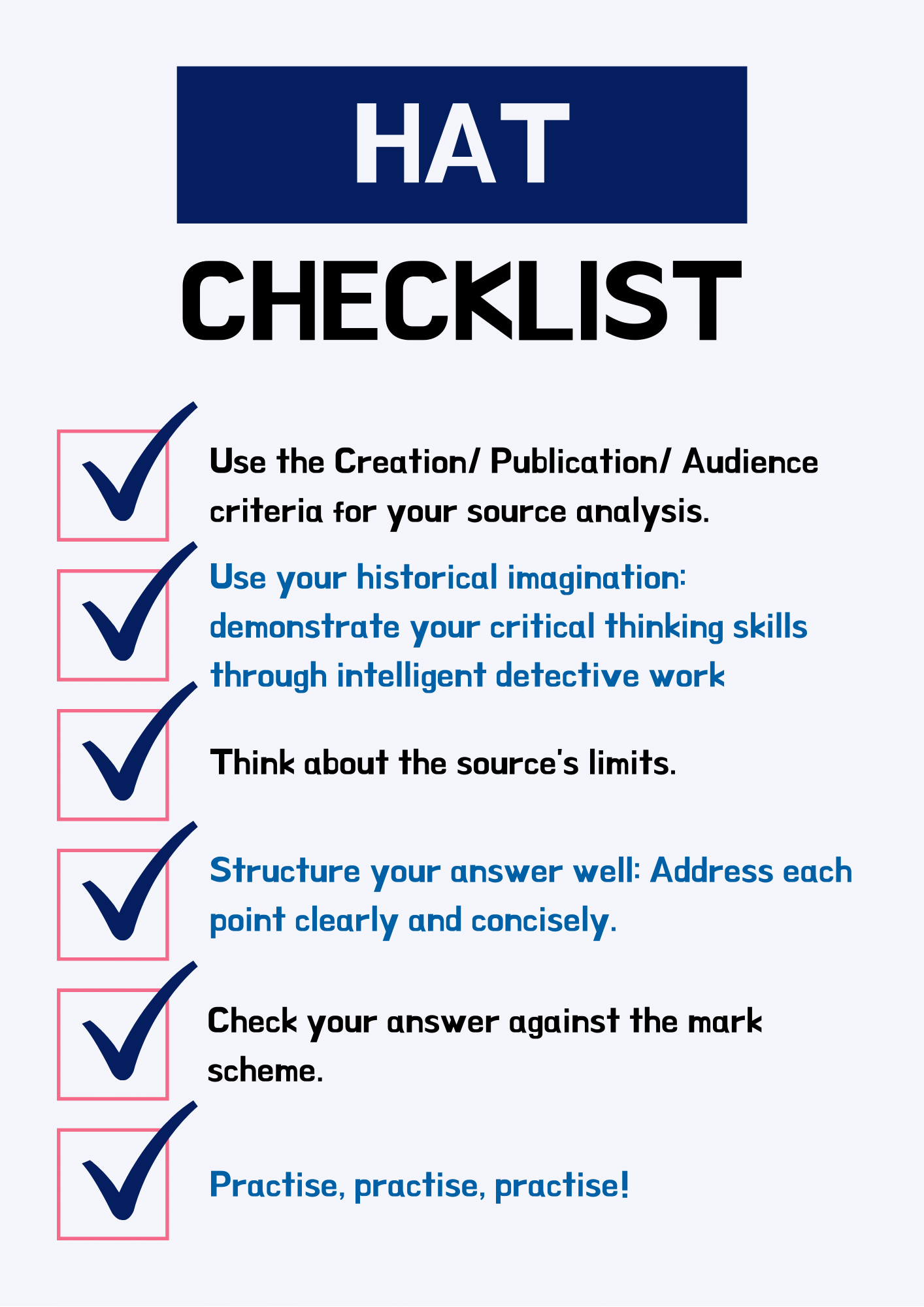Approaching the Oxford HAT: A Graduate’s Guide 2025
What is the History Aptitude Test and why does Oxford use it?
The History Aptitude Test is used by Oxford for several reasons. The first is to help them decide who to invite to interview and who to reject. The second is to test your skills as a historian. It consists of one question based on an extract from a primary source. You must answer this in one hour. It is, at its core, a test of your source analysis skills. Within that, however, a number of other vital skills will be tested. This guide will explain how to signpost these to your marker.
The importance of the Oxford HAT cannot be understated. It is a crucial factor in Oxford deciding whether to invite you to an interview. Moreover, your mark may still be considered at interview. Oxford receive applications from many bright students. If several applicants have performed well at interview but there is only room for one, they may review how each person performed in the history aptitude test to inform their final decision.
Finally, you should expect the unexpected with the HAT. Oxford will attempt to select unusual sources that A Level students will not have read. They will often be primary sources from period of history that do not feature on exam syllabuses. Recent history aptitude test past papers have included a letter about sightings of dog-headed people in medieval Scandinavia, an inventory of objects seized from French missionaries in the Ottoman empire, and a Persian history of Ghengis Khan’s conquests.
What factors do I need to consider for Oxford HAT source analysis?
Oxford is not expecting you to reinvent the wheel when it comes to source analysis. The criteria below should still form the basis of your answer. The History aptitude test is testing how much you can develop your analysis within these parameters to write a nuanced, thoughtful answer.
• Creation: Who wrote/created this source? What was their standing in society, their profession, their kinship group or faction? Do we know anything about their politics, or their religious convictions? What was their objective in producing this source?
• Publication: Was this source in manuscript or print, or a material artefact? When was it produced, and how? Does it use symbolism? Is the form we have here the result of later transmission and/or translation?
• Audience: Who saw this source at the time? Was it intended for a particular audience, and if so, did it reach that audience, or another one? Do we have any recorded responses to it?
It is vital to be aware of the fact that you will receive no credit for discussing the historic context. If you know about the period in question, you must not rely on your knowledge to inform any of your analysis. You must make sure that everything you say is evidenced by the source alone.
How do I make my answer stand out?
The answer to this question is to demonstrate your "historical imagination.” For more on this, check out my article on Minds Underground, U2’s co-curricular division.
The term historical imagination can, at first, seem like a very vacuous concept. It often makes more sense with an example. In a recent history aptitude test past paper, students were asked to comment on a guide published by the French government setting out how slave owners in the Caribbean should behave.
Students might demonstrate historical imagination by considering, for instance, why the government felt the need to publish such a guide in the first place. What might the new regulations tell us about the current behaviour of slave owners? If plantation owners were behaving according to these rules, there would be less, or even no need for them.
Therefore one might speculate that their rules are not practised by slave owners. You might also glean from this how slave owners were actually behaving from practices that the regulations seek to ban, prevent or discourage.
The best way to understand this concept and — more generally — how to impress your marker is to read the mark scheme for the Oxford HAT. If you can understand what the marker is looking for, you will find it far easier to score a high mark. When you practise a past paper, always re-read your answer afterwards alongside the mark scheme. See whether you missed any important points and how the mark scheme suggests candidates might be able to demonstrate their historical imagination. You are not expected to mention every point in the mark scheme. Tutors will determine your mark largely based on what you have written, not what you have missed out.
How do I prepare for the Oxford HAT?
In short, the best way to prepare for the Oxford HAT exam is through practise! You may well have had to analyse sources for GCSE or A Level exams. However, this test is of a different calibre. You must become familiar with the exam format and be confident that you can write high quality answers to time. The more history aptitude test past papers you attempt, the better placed you will be to succeed. (N.B From 2018, the format of the Oxford HAT changed. Make sure that if you answer a pre-2018 paper you only complete the long form question on a primary source.)
There are a finite number of history aptitude test past papers, so make sure you do not complete them all too early. Pace yourself: look over your answers alongside the mark scheme and think honestly about how your answer could have improved. Make sure you also identify what you have done well according to the mark scheme, so you know to build on that.
Oxford HAT papers are, without a doubt, challenging. Do not feel overwhelmed after your first attempt at a past paper. Few applicants who go on to study history at Oxford do brilliantly at first. The test is not meant to be easy; it is meant to be difficult and stretch you. So long as you practise regularly, you will be able to pass this test with flying colours.
What about exam technique for the Oxford HAT?
There is not one correct way to answer the HAT. It is, however, important to structure your answer appropriately, so make sure you allow five to ten minutes to plan your essay once you have read the source. At the start of the exam, it can help to write down the key aspects of source analysis:
creation
audience
publication
Tick them off as you come up with points to address each one. It is unwise to neglect any of them in your answer.
You should begin your answer with a short introduction. This is a good place to summarise what the source is about in one or two sentences. It shows the marker you have understood the source. You should also explain briefly how you intend to answer the question. For example, you may group your analysis into several themes as a way to discuss the source. Equally, you may wish to discuss the source chronologically. Either approach is acceptable.
Your main body should form the bulk of your answer. This is where you will demonstrate your source analysis and historical imagination. As well as discussing the source’s creation, audience and publication, you may also choose to discuss its limits. This can gain you marks if you are specific and targeted. For example, in the history aptitude test past paper on slavery in the French colonies, writing that the source is limited because it tells us nothing about French people who did not live in the colonies would gain you no marks.
The Oxford HAT tends to ask ‘what does this source tell us about…’. The wording of this question demands a positive response. This means your analysis should focus primarily on what the source reveals, rather than its limits.
Your marker should be able to write your conclusion. Do not introduce any new ideas here. You should only summarise your key points to remind the reader what you have said and why. For this reason, you can keep your conclusion short and to the point.
You may have noticed that I do not suggest a minimum or maximum number of word or pages. That is because markers are more concerned with the quality of your answer, not how much you can write.
Best of luck in the History Aptitude Test!
If you found this helpful, check out our article on preparing your application for History (reading, key trends & concepts, Oxbridge interviews) here.
Oxbridge History Mentoring
U2 offers Oxford HAT preparation, as well as wider Oxbridge Mentoring programmes (book a free consultation to discuss options). We have a large team of Oxbridge-educated History mentors including 1st Class, Master’s and PhD level graduates.
The Process:
1) We suggest an Oxbridge History graduate as a mentor and send their full CV for review. Our mentors are deeply familiar with the admissions process to study History at the University of Oxford and Cambridge, and are well-placed to guide you through personal statement curation, the entrance exam and interview process. We may suggest a range of application tutors to choose from with slightly differing rates depending on qualifications and level of experience.
2) We typically suggest beginning with a 1.5 hour informal assessment/ taster session, where the mentor will informally assess the student’s current performance level for application, including test and interview. Following this, we issue a report with feedback, and structure a plan to best prepare.
3) U2’s approach for regular History application sessions: The main focus of tutorial sessions will be to explore material that can be discussed in the personal statement and at interview - this may sometimes stretch from A-Level standard to First Year Undergraduate. Mentors ensure each student refines their interests within History, and is exposed to a range of historical approaches and new concepts, guiding students in their reading and wider subject exploration. Together, we build a case for the student, solidifying the stance and direction they will take during interview and honing skills for the HAT if applicable.
Frequency of sessions can be decided between student and mentor. Students can take either ad hoc sessions, or we structure a full programme for preparation, which may include further co-curricular opportunities such as our research projects, History summer school and Oxbridge mock interview days. Honing the skills necessary to succeed for Oxbridge ideally requires long-term preparation and mentoring presents a wonderful opportunity to learn from some of the very best Oxbridge has produced. We also provide GCSE, A-Level or IB History support if needed.
Sessions from £70/h.




